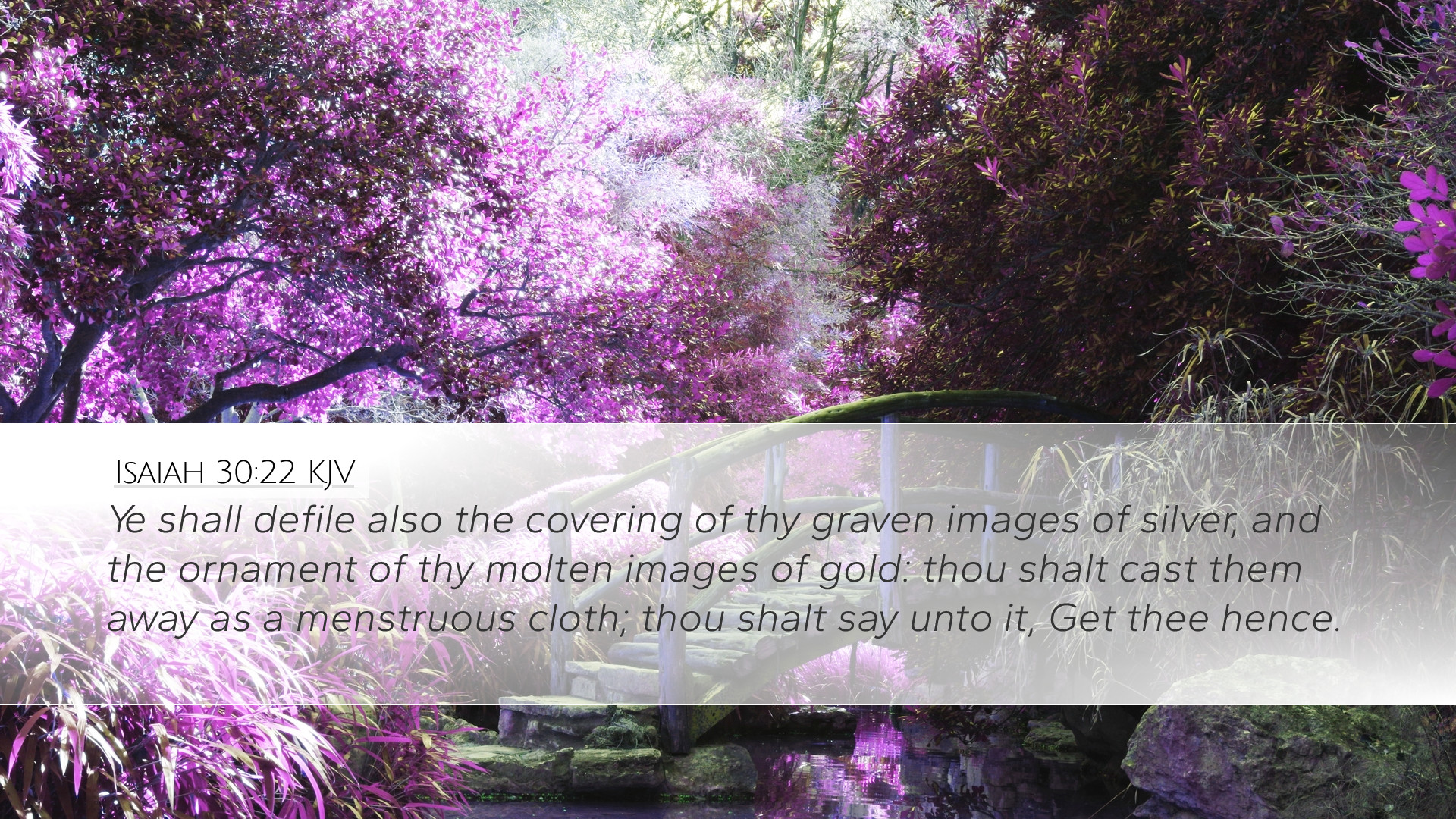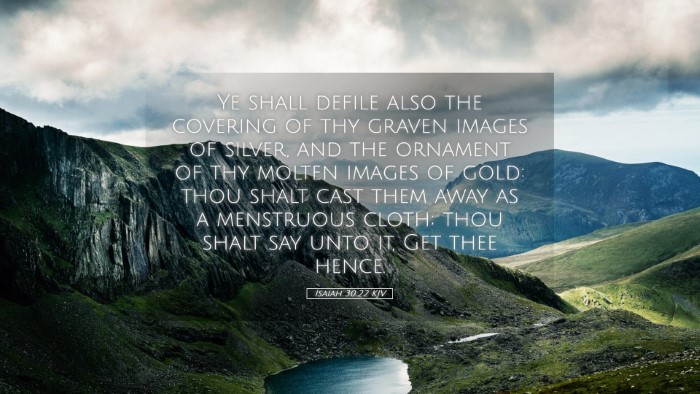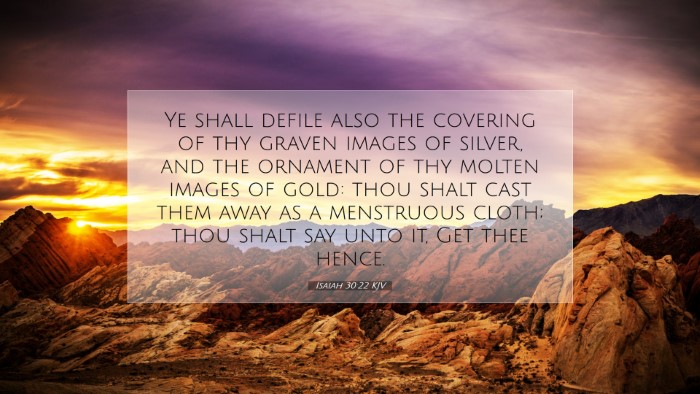Commentary on Isaiah 30:22
Bible Verse: "You will defile your graven images plated with silver, and your molten images covered with gold; You will scatter them as an impure thing, and say to them, ‘Be gone!’"
Contextual Overview
Isaiah 30:22 presents a profound message regarding idolatry and the ultimate rejection of false gods. This verse is situated within a broader context where Israel is being admonished for their reliance on Egypt for protection rather than on God. The prophet Isaiah emphasizes the futility of man-made idols in contrast to the living God, calling for a radical transformation in the hearts of the people of Israel.
Commentary Insights
Matthew Henry’s Commentary
Henry emphasizes the idea that the idols, which were once cherished by the people, will ultimately be loathed and rejected. He notes that this vision of destruction and disdain reflects a fundamental change in the hearts of the people, who will come to see the idols not as worthy objects of worship but as mere impediments to their relationship with God.
- Defilement of Idolatry: Henry points out that something once precious can become abominable in the light of truth. The people, enlightened by the grace of God, will vehemently turn against their former ways, treating their idols as polluted objects.
- Transformation of Heart: The words 'be gone!' signify a new intention and direction for the Israelites. They will not only cease to worship these idols but will actively destroy and disassociate from them.
Albert Barnes’ Notes on the Bible
Barnes provides a deeper historical and theological interpretation of this passage, emphasizing the cultural context of Israel's idolatry. He asserts that the idols of the nations were often adorned with material wealth, yet they could never compare to the power and holiness of the true God.
- Material versus Spiritual: Barnes underlines that the inevitable rejection of these idols illustrates the superiority of spiritual worship over material appearances. The adornments of silver and gold are empty and will be disdained.
- Impurity of Idols: He discusses the concept of idols being impure, suggesting that their very existence leads to spiritual corruption. The call to scatter these idols reflects a desire for purity and realigned devotion to God.
Adam Clarke’s Commentary
Clarke offers a comprehensive look at the implications of Isaiah 30:22, treating it as a prophetic declaration of future repentance and restoration. He interprets the verse within the context of God's redemptive purpose for Israel.
- Future Restoration: Clarke suggests that this verse gives hope for Israel’s eventual return to true worship. The act of defilement symbolizes a breaking free from chains that once bound them to false worship.
- The Power of True Worship: He underscores that the rejection of idols will lead to the embracing of true worship that brings healing and restoration within the community. The act of saying 'be gone' is potent and transformative, signifying liberation from the past.
Theological Reflections
The theological implications of Isaiah 30:22 are significant for understanding both personal and communal worship. The rejection of idols serves as a metaphor for the purification necessary in the lives of believers. Here, we find strong admonitions against anything that may take precedence over God, effectively calling for the church to examine its own idols.
- The Nature of True Repentance: Just as Israel is called to reject their idols, so too are modern believers called to renounce anything that distracts from their devotion to Christ.
- Community Implications: Idolatry does not only affect the individual believer but can lead entire communities away from God's intended purpose. Thus, the call to scatter idols becomes a clarion call for purification within the church.
Application for Pastors and Theologians
The commentary on Isaiah 30:22 provides rich material for sermons and theological discussions centered around the theme of idolatry. Pastors may consider using this verse to challenge congregations to a deeper reflection on their personal and communal worship practices.
- Idolatry in Contemporary Context: Modern idols may not be physical statues but can include materialism, technology, or even relationships that distract from God. Pastors can encourage small groups to engage in discussions about hidden idols in their lives.
- Encouraging True Worship: In teaching settings, this verse can lead to conversations about what authentic worship looks like in the life of a believer, focusing on spirit and truth as per John 4:24.
Conclusion
Isaiah 30:22 serves as a powerful reminder of the necessity of casting off all forms of idolatry and turning wholeheartedly towards God. The insights derived from the commentaries of Matthew Henry, Albert Barnes, and Adam Clarke provide depth and richness to this understanding. It challenges both a historical perspective on idol worship and contemporary applications that remain relevant today.


